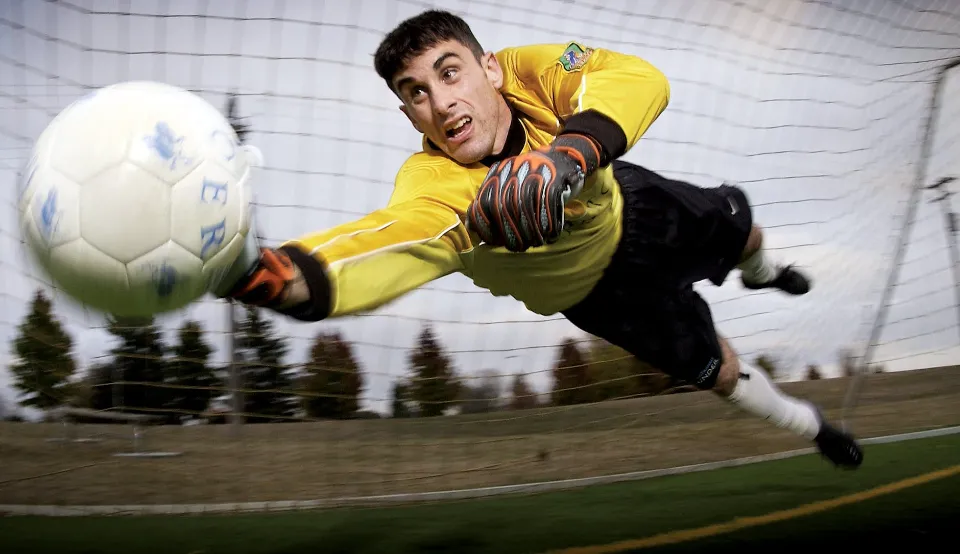
Why College Athletes Should Be Paid? 11 Top Reasons
These are the main justifications for paying student-athletes. However, there are a few more that are supported below.
Since collegiate sporting events were first organized, college athletes have never been paid. A lot of major college sports programs use the amateur ideal as a justification for not giving the athletes a share of the money they earn.
The fact that students put so much time and effort into carrying out their athletic responsibilities makes being an athlete still seem like a full-time job.
Therefore, why should college athletes receive compensation? Because they bring significant financial benefits to their universities, increase enrollment, put in full-time hours, and lack the time to hold down a full-time job in addition to their sport, college athletes ought to be compensated.
The discussion of pertinent details for each argument, as well as the opposing viewpoints, would be covered in this guide. It will discuss the benefits of paying college athletes.
More Incentives for Student-Athletes
Even though college sports are already competitive, there is more motivation for student-athletes to work harder when there is money at stake. Why shouldn’t the student-athletes get a share of the money since they already make money for the school?
Student-athletes will want to work harder and perform better if you pay them a portion of what they contribute to college sports programs. Student-athletes will work harder during practices and games, just like you would if you were working a job for which you were paid. And if they are not performing well, their “job” could be on the line.

Student-Athletes Bring in Money
The student-athletes are the center of attention when college students, parents, and alumni attend college sporting events. People will watch more games and pay more to participate in the games when you have good players. Paying student-athletes seems only fair because they generate a lot of revenue for colleges.
Due to the significant financial contribution that college sports make to colleges as a whole, there may be some money left over for student-athletes. When student-athletes perform well, ticket and merchandise sales soar and the college earns more money.
Since each college offers a different set of programs, it stands to reason that the payment would differ.
Related:
- What Are The Most Popular College Sports In America?
- Do Community Colleges Have Sports?
- Can You Play Two Sports in College?
Student-Athletes Have No Time for Jobs
Student-athletes are unable to work while attending college due to time commitments. They might not have the extra money you need while you’re in school if they have an athletic scholarship.
Athletes may still need to pay for their housing, food, and school supplies even if their tuition has already been paid in full. By compensating student-athletes, you give them the opportunity to make money. They can use that money to buy necessities for the duration of their college careers.
Finding work can be difficult because not all student-athletes receive financial aid. The practice and game schedules for student-athletes must be taken into account before working.
They Give Their Schools Valuable Exposure

Student-athletes can increase applications and donations because of the exposure they give their schools.
The Boston College quarterback Doug Flutie, who made his school famous in 1984 with his infamous Hail Mary pass against the University of Miami and his Heisman-winning season is responsible for the phenomenon known as the “Flutie Effect,” which has the potential to have a significant impact on college admissions. In BC, the result was a two-year increase in applications of 30%.
More broadly, a study showed that when a football team “rises from mediocre to great,” applications increase by 18.7%. Similarly to this, if a team increases its win total by five games over the course of a season, alumni donations increase by 28%.
Sports Take Away from Studies
Students study time is significantly impacted by their intense commitment to sports. Leaving aside barbs about the “student” part of “student-athlete,” how is an athlete supposed to keep up with academics during their playing season?
What about getting good grades and positioning oneself for the competitive job market? Would accepting this compromise be easier if there were monetary remuneration involved?
Athletes Need Spending Money
Athletes in college have similar financial needs as other students. Even if a student receives a full scholarship, the award does not include pocket money for luxuries and entertainment. Where does a student get their money (aside from their parents) if they don’t work a part-time job?
The Potential for Injury Makes Compensation a Must
Athletes constantly run the risk of getting hurt, so they should get fair compensation. A serious injury could result in an athlete losing their scholarship (which is only guaranteed for one year at a time), forfeiting their chance to play professionally and potentially earn millions of dollars, or even becoming permanently disabled.

Today, we know a lot more about chronic traumatic encephalopathy (CTE) and the long-term effects of concussions. In 2017, a study revealed that CTE, a degenerative brain disease linked to dementia, was present in 91% of deceased former college football players.
Renowned Sports Teams Increase College Admissions
College sports don’t just generate money. The athletes are valuable workers for the college because they also draw in students, which is another reason.
There are numerous examples of an average college (academically speaking) developing a successful sports team, which causes a spike in college applications.
Additionally, a college may increase tuition costs once it has a strong reputation and a more competitive applicant pool. As a result, college athletics can bring in money for the institution both directly and indirectly.
Athletics Are Expensive
When an athlete competes at the collegiate level in a sport or other athletic activity, it is typical for them to have invested a significant amount of time, energy, and money in their development.
In other words, you must be extremely skilled to play a sport in college, which implies that you worked hard to become proficient.
A student who has practiced to the level necessary to get into college has probably spent a fair amount of money over the course of their career because athletics can be expensive.
If a student is participating in sports on a full-time basis in college, they should be paid because they have expended money to attend and should benefit from their investment.

College Athletes Should Have a Safety Net in Case They Cannot Go Pro
Not every college athlete goes on to play in the NBA or NFL and earns millions of dollars annually.
Graduates with little left over to start their lives over, especially if their grades have suffered due to their commitment to their sport, are left with little.
Most college athletes devote their entire childhood and adolescence to perfecting their sport, and after four years of college, they have little else to their resume. If college athletes were paid, at least they would have a savings account to rely on as they decide what to do next.
College Coaches Are Paid Handsomely
If you closely examine the situation, it seems odd that college sports teams are made up of unpaid students but are coached by professionals who are paid very well.
It seems unfair and, to be honest, perplexing why one important stakeholder would be compensated while the others wouldn’t since there would be no team for the coach to coach without the athletes.
You would anticipate that the revenues would be distributed more fairly among everyone on the team in order to ensure equality.
Final Thoughts: Why College Athletes Should Be Paid?
College athletes put in a lot of work and, in some ways, are comparable to their professional counterparts. Additionally, they are a huge source of revenue and goodwill for the colleges they support.
Getting paid to play college sports can be challenging because each college’s athletic department is unique. If college athletes were paid, politics would become more prevalent in the sport.


